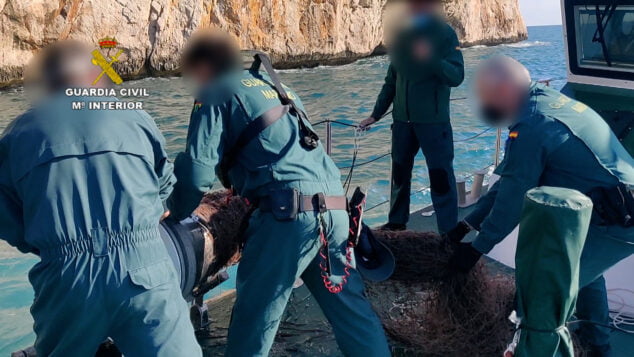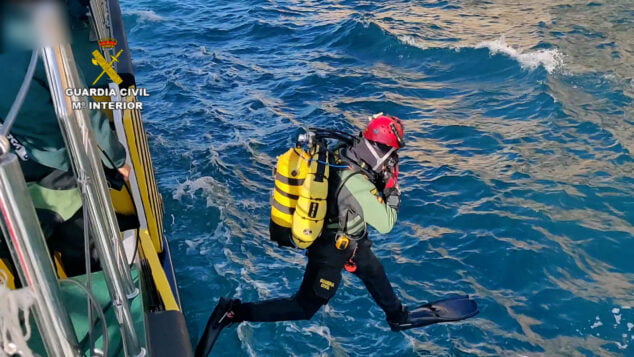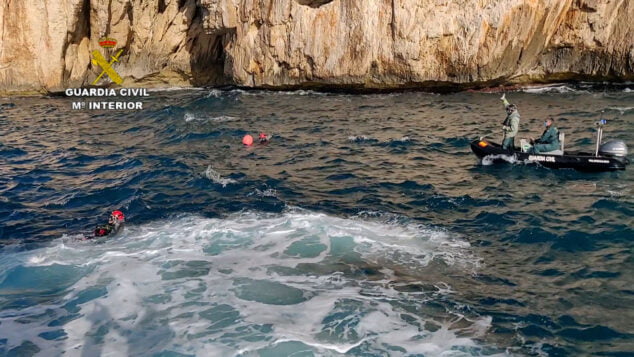The Civil Guard of Alicante has collaborated in the extraction of fishing nets. Many of which are not seen but in some cases continue to cause damage to the marine ecosystem.
This initiative stems from a joint action with the Valencia General Directorate of Agriculture, Livestock and Fisheries and the Alicante Department of Agriculture. During the day the Deputy Director General for Fisheries and the Fisheries Inspector of the Alicante Department of Agriculture were present.
The Brotherhood of Xàbia put at the disposal of this project a small art fishing boat. The Civil Guard provided human and material resources so that the collection of nets was completed successfully.
Six components of the Provincial Maritime Service of the Civil Guard of Alicante traveled to the coast of Moraira to carry out, with the support of GEAS, the extraction of abandoned fishing nets on the seabed.
Nets constitute a very large source of plastic pollution in our seas. Sometimes they get caught in the rocks at the bottom and in many others they float on the water, which makes their collection much easier.
This type of abandoned, lost or discarded fishing gear is known as “ghost nets”. They receive this name because although they are accidentally or intentionally abandoned, they continue to trap all kinds of marine species for a long time.
There are many reasons why this type of material usually ends up in the sea. From the loss of control by the fisherman, through the abandonment by illegal fishermen and even the ignorance of the environmental impact that this has on seas and oceans, on marine species and even on the human species.
In the early morning of November 25, the Civil Guard ship known as "Rio Oja" headed for the coast of Xàbia, specifically to the "Island of the Discoverer", where the first of the extractions would take place.
It is a recently acquired boat that is 21 meters long and reaches a speed of 37 knots.
Having reached the point to carry out the work, two of the divers entered the bottom with their equipment weighing more than XNUMX kilos. Barely twenty minutes later the fishing net had been pulled from a rock at the bottom of the sea.
The fifty meters of material were extracted by the agents from the ship using a net hauler. The difficulty of the work lay in the proximity of the extraction points to the cliffs in the area.
Among the mess of fine threads appeared a Mediterranean cicada known as "slipper" that was later returned to the sea. It is a species, abundant for years, which is now more difficult to find on the Mediterranean coasts due to the ease that fishermen have to catch.
Cala del Llebeig was set as the next point to carry out the next extraction. As the boat approached you could see how the net was floating on the surface. However, the divers again submerged themselves in the water and released a part that had been hooked to the rocks, recovering a net thirty meters long.
Once these fishing tools have been rescued, the Civil Guard agents will draw up an act that will be notified to the Alicante Department of Agriculture and Fisheries. This will resolve its deposit and destruction in the places enabled for it.











